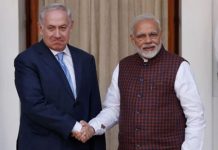UNITED NATIONS, ::A top Pakistani diplomat has called on the UN Security Council to join Pakistan in demanding that the Taliban authorities terminate their relationship with the Tehreek-e-Taliban Pakistan (TTP), which is responsible for persistent attacks against Pakistan’s military and civilian targets.
“Left unchecked, the TTP, supported by Al-Qaeda and some State sponsors, could soon pose a global terrorist threat,” Ambassador Munir Akram warned the 15-member Council on Wednesday.
Speaking in a debate on the situation in Afghanistan, the Pakistani envoy said, “The Afghan Interim Government’s failure to control the TTP and other terrorist groups erodes its claim of full control of its territory that it asserts in order to secure international recognition.”
He also urged the United Nations to undertake an investigation to find out how the TTP has acquired advanced military equipment and weaponry and to identify the sources of the TTP’s financing, which is helping sustain its 50,000 fighters and their dependents and its terrorist operations.
Regarding the reported border incidents, the exchange of fire by Pakistani security forces was always in response to cross-border attacks by the TTP and its affiliates against Pakistan’s border posts and installations.
“We would expect the UN to call on the Afghan Interim Government to prevent such cross-border attacks and infiltration by the TTP and other terrorists into Pakistani territory.”
Highlighting that terrorist organizations in Afghanistan pose a security threat to each one of the country’s immediate neighbours, Ambassador Akram said, “Counter terrorism must be the highest priority in any future Roadmap for engagement with the Afghan Interim Government.”
At the same time, he said that the international community must help millions of destitute Afghans through the provision of “unconditional” humanitarian assistance. It was also important to support Afghanistan’s economy and, to this end, the international community should help revive the banking system and facilitate the release of frozen assets to the country’s central bank.
For its part, Ambassador Akram said that the Taliban must fulfill its international obligations — especially regarding the fundamental rights of women and girls — promote inclusivity and, above all, eliminate terrorism within and from Afghanistan.
He called for a realistic road map, with reciprocal steps by the Afghan interim Government and the international community, leading to the country’s integration into the international community.
The Pakistani envoy also detailed some objections to the Secretary-General’s report on the situation in Afghanistan, including its claim of an “unfavourable protection environment in Pakistan”. On that, he underscored that Pakistan has sheltered almost 5 million Afghan refugees for over 40 years at great economic, social and security cost with little help from the international community.
Earlier, Roza Otunbayeva, Special Representative of the Secretary-General (SRSG) for Afghanistan, in her briefing, stated that Afghanistan remains a persistent challenge for the international community.
With a history of instability, terrorism and contributing to 85 per cent of global opium production, the nation has also witnessed millions of refugees seeking refuge in neighbouring countries and beyond.
While the current state of relative stability deserves acknowledgment, it is crucial to recognize the substantial efforts made by the Taliban in curbing opium cultivation and combating Daesh, Ms. Otunbayeva said.

















